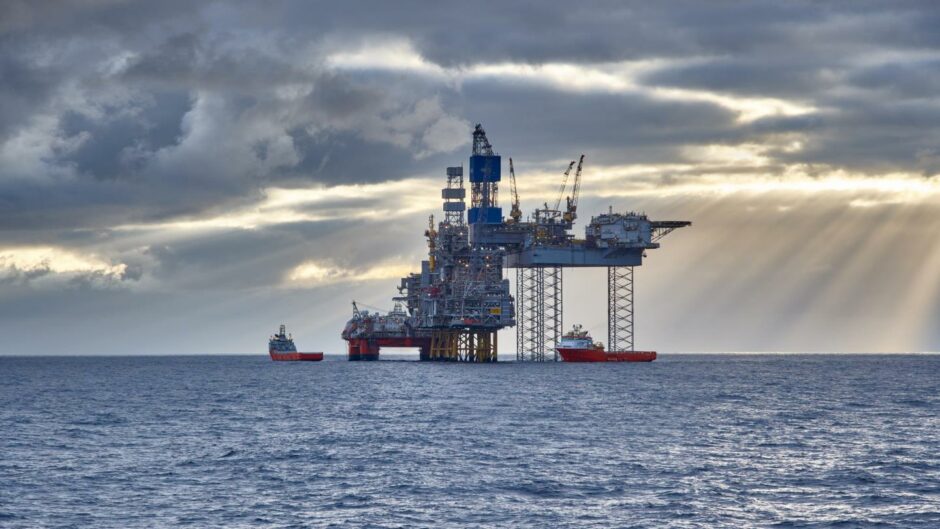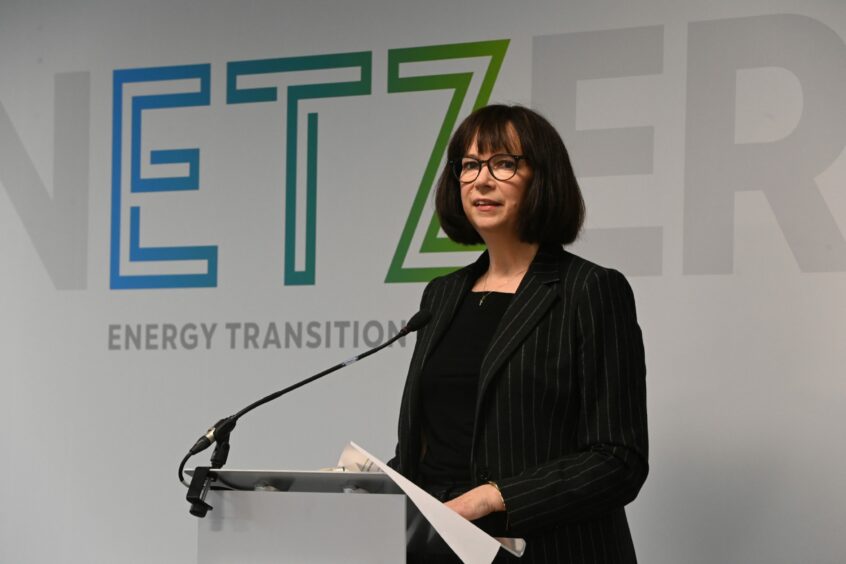
Political instability has been flagged by the UK energy sector as the biggest obstacle to companies transitioning to net zero, according to a new report.
A shortage of available skills, and the potential for that to hamper growth, also emerged as a major concern in a biannual study, compiled by Aberdeen & Grampian Chamber of Commerce (AGCC).
Produced in partnership with accountancy giant KPMG and not-for-profit ETZ Ltd, the energy transition survey gives a barometer of confidence in the UK sector.
According to the 36th instalment of the report, exactly half of companies feel the current political and regulatory environment is now a barrier to diversification – that’s up from 24% a year ago.
Windfall tax fueling unease
The rise is hardly surprising given the last few months, in which the UK has gone through four chancellors and three prime ministers.
Wesminster’s decision in May to hit North Sea oil and gas producers with a windfall tax – U-turning on its original stance – has done little to allay the sector’s unease.
As part of an effort to raise cash to held hard-up households, the then-Chancellor Rishi Sunak increased the headline rate of tax on companies to 65%.
It means the UK North Sea now pays one of the highest levels of corporation tax of any sector anywhere in the world.
At the time there were fears the windfall tax may not be a one off, and it is widely expected that the rate will rise further when the Chancellor delivers his autumn budget on Thursday.
A summer of ‘Machiavellian manoeuvres’
Ryan Crighton, policy director at AGCC, said: “Half of the companies surveyed for Energy Transition 36 said that the current political environment was a barrier to their diversification into new low carbon energies. And it is easy to see why after a summer of Machiavellian manoeuvres at Westminster, and further anti-oil and gas rhetoric from the Scottish Government.
“Since the last edition of this report in May, we’ve had three different prime ministers and four different chancellors. And in that time, the UK Government’s stance on a windfall tax has shifted several times.
“The result is we now have an energy sector paying some of the highest corporate taxes in the world, while trying to operate in one of the globe’s most mature and challenging basins, while also trying to invest in the new low carbon energies of the future.
“The clamour for windfall taxes is understandable, but the whole debate has been driven by politicians unwilling to listen the hard truths which lie behind this populist policy. The energy transition is going to cost tens of billions of pounds. And it is becoming abundantly clear that the UK’s public finances are not in a position to share that bill.
“At a time when oil and gas producers are being asked to invest more to help ensure the UK’s energy security and make longer-term investments in renewables, additional taxes risk undermining their ability to do either.”
An exploration uptick
Aside from the concerns about political flux, companies are forecasting a continued uplift in exploration activity in the UK North Sea, likely down to the launch of a new offshore licensing round.

The majority of the sector also expects revenue to rise in 2023, though this is marginally down on April, when the last report was published.
Moreover, over half of businesses (61%) now believe the North Sea Transition Deal (NSTD) has had a positive impact on confidence in the basin.
Sector making progress with transition
Importantly the survey shows that, despite the political upheaval, UK energy companies are getting on with the transition, with 47% believing their work will be outside of oil and gas by the end of the decade.
Just under half (44%) of firms believe they will be more involved in offshore wind within five years, while 70% are actively diversifying their low carbon operations.
Sourcing enough workers to carry out work remains a major worry though, with 61% of businesses identifying access to skills as one of the defining issues in the year ahead.
Indeed, the long-running survey – which is now in its 19th year – shows there has been a surge in recruitment concerns across all facets of the energy sector.
Worryingly, it also found that while a quarter of companies in the industry will be net zero by 2030, 34% have yet to commit to a strategy at all.
Martin Findlay, officer senior partner of KPMG in Aberdeen, said: “Net zero remains a non-negotiable for the country, for business and for society. The journey of the offshore oil & gas sector towards a greener future isn’t a new one, and with oil & gas likely to remain a vital part of our energy mix for decades to come, we still have some distance to go.
“The direction of travel is clear amongst oil & gas firms. They are expecting their businesses to transform substantially and at pace across the next decade. What companies do now across the three ESG strands of environmental, social and governance will determine the talent they attract, the customers they serve, the profits they make, and ultimately the impact they will have on society.”
Asks of government
As part of the study, AGCC has made four recommendations to government to help support the energy industry.
It has called for a stable fiscal regime for the North Sea, with no expansion of the windfall tax, alongside an extension of the investment allowance to include low carbon technologies.
The need for measures to accelerate business transition to net zero, and for the UK Government to progress the Scottish carbon capture cluster have also been highlighted.
Maggie McGinlay, chief executive of ETZ Ltd, said: “ETZ Ltd is proud to partner with KPMG and AGCC once again in support of the ET36 survey, the publication of which comes at crucial juncture in North East of Scotland’s transformation to capitalise on the opportunities that energy transition provide.
“The ongoing crisis in Ukraine and unprecedent cost crisis has precipitated significant debate around the structural weaknesses in our economy and how to address them. As a result, our policymakers are now firmly focussed on achieving greater energy security and supply for the long term as one of the solutions to this volatility.
“The results of this survey reflect this very context and reaffirms that the delivery of energy transition will require investment in strategic infrastructure, technology innovation, supply chain development and skills. That is exactly what ETZ Ltd has been set up to do and, working with partners in government and industry, we are witnessing the active acceleration to new energies and a net zero future.”
Recommended for you


 © Shutterstock
© Shutterstock © Ross Johnston/ Newsline Media
© Ross Johnston/ Newsline Media © Supplied by KPMG
© Supplied by KPMG © Supplied by Kenny Elrick/DCT Med
© Supplied by Kenny Elrick/DCT Med